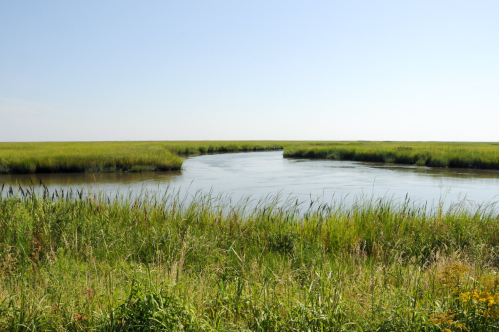Typically a treasure hunter is a person who searches for sunken, buried, lost, or hidden riches. In this story we have a different kind of treasure hunter and with his fortune he built a magnificent home in Vermont, which he named Shard Villa after a woman he had never met. Let’s start at the beginning and take a closer look at this unique home in Vermont, shall we?
In the mid 1800s, Columbus Smith, a young lawyer and Middlebury graduate, started searching English records hoping to connect long lost American relatives. You see, if an Englishman died and had no heirs the estate went to the Crown.
Smith would find heirs to the English estates and, after informing the unsuspecting lucky recipients, would offer to reclaim their inheritance… for a percentage or a fee. After returning from England on a trip in 1842, the business started going the other way, too. American’s with English heritage would contact Smith in hopes that they had unclaimed property in England.
In 1844, the Ruthordford family who lived in New Jersey believed they should have inherited a considerable fortune. However, they couldn’t prove their ancestry despite their claim that they were decedents of Frances Mary Shard.
Frances Mary, who was estranged from her family, met her wealthy second husband, William Shard, and lived a life of luxury on the coast of England. She was widowed and remained in England until she died, leaving no children, heirs or will in 1821.
It took Columbus Smith 14 years and many trips to England before he could reclaim the estate from the Treasury and into the hands of the Rutherfords. The estate was valued at $300,000 and Smith received one third of the inheritance.
Although this case was one of many for Smith, it was certainly his most famous. This is the reason why he would name his grand estate in Salisbury the Shard Villa.
In 1866, Smith married Harriet Jones and by 1870 they had son, William, and daughter, Mary. It was time to put the plans for building the Shard Villa.
In 1872 Smith began spending his fortune in earnest and began work on his mansion. Built of Ashlar Marble from Cornwall, the mansion contained an impressive 30 rooms on 700 acres. The main house was finished by 1874, but work continued well into the 1880s, when Smith brought Italian artist Silvio Pezzoli to live at the mansion while he finished frescoes that adorn its ceilings and walls.
The impressive mansion was constructed on the site where Colombus Smith’s ancestors had once lived in a log cabin. He spent a reported $175,000 on the exquisite house where he showcased his collections from around the world which included relics from battles, coins, swords, arrows, and heirloom pewter.
It was reported that 36 different types of wood was used to finish the interior and no two rooms were finished the same way. Smith designed the Shard Villa with family in mind, including nurseries and a room for his elderly mother.
The Smiths enjoyed their wealth and sat on several boards and committees in the community and the livestock on his farm included exotic bison. The Shard Villa was a destination for prominent visitors to Vermont as well as the site hosting elaborate parties.
However, Smith’s charmed life came to an abrupt end. In 1881, Colombus and Harriet’s first child, William, died of meningitis at the age of 14. They constructed an ornate mausoleum on the Shard Villa estate with glass shelves and glass topped coffins.
William’s death, naturally, took its toll on Columbus, especially since his remaining child, Mary, was not well. Mary went on to marry and the celebration took place in Shard Villa. Sadly, a year after her marriage, Mary died of tuberculosis. The death of his remaining child sent Smith into a deep depression.
By the end of his life, Colombus Smith suffered from many paranoid delusions. He died in 1909. While his estate was speculated at valuing millions, it was appraised at $340,000 which included his properties in Illinois, Wisconsin, Nebraska, Texas and the Dakotas as well as New England.
In his will, Smith stated that Shard Villa should be converted to a nursing home for "old Christian women not addicted to drink," and that the residual money should be used to fund its operation.
In an ironic twist, Smith’s will was contested upon Harriet’s death by his own relatives who opposed the donation of the estate.
Smith’s grandniece and grandnephew challenged his will, which had been written and amended from 1897 to 1903. They argued Smith was insane when he largely disinherited his family. Details such as an inheritance of $1 to his brother-in-law "to buy a feather for his cap when he played soldier or a whistle and rattle to amuse himself in his declining years" and "$25,000 "or $50,000 if she preferred" to his wife were argued that Smith was not in his right mind when he drafted his will.
After hearing from 112 witnesses, the Addison County Court deemed that Smith was sane after a hung jury couldn’t decide on the first round of debate. The will was declared as valid. Harriet, who had considerable wealth of her own, could have settled the case but fought to defend her husbands wishes. In 1914, the Supreme Court also upheld the will and allowed for the establishment of the rest home at Shard Villa.
If You Only Have One Day to Visit This Small Town in Maine, Here’s Everything You Absolutely Can’t Miss

If You Only Have One Day to Visit This Small Town in Massachusetts, Here’s Everything You Absolutely Can’t Miss

If You Only Have One Day to Visit This Small Town in Maryland, Here’s Everything You Absolutely Can’t Miss

Today, Shard Villa remains an active and functioning home for the elderly. Despite its time with financial instabilities and a rumored closing in 2008, a new board was elected and a revival of the grand Villa took place. Today, Shard Villa is home to 16 residents.
The Smith Family mausoleum remains on the property holding four bodies: Columbus, Harriet, William and Mary. A place for Mary’s husband Alexander McDowell remains empty. Tragically, Alexander McDowell slit his own throat in 1908. He continued his relationship with the Smiths traveling to Vermont through the years after Mary’s death.
Had he outlived Smith, McDowell was to set to receive $2,000, a large sum in the day, from the estate, a room in perpetuity at the Shard Villa and the option to be resident physician at the facility if he wished.
If the interesting history isn’t intriguing enough, the ghost of Columbus Smith has allegedly been spotted wandering the grounds of Shard Villa at night.
Did you know about Shard Villa or the story behind it? Like our Facebook page for more interesting stories from Vermont. Like and share with others, too!
Subscribe to our newsletter
Get the latest updates and news
Thank you for subscribing!

































